Kihyun Nam
TalkNCE: Improving Active Speaker Detection with Talk-Aware Contrastive Learning
Sep 21, 2023



Abstract:The goal of this work is Active Speaker Detection (ASD), a task to determine whether a person is speaking or not in a series of video frames. Previous works have dealt with the task by exploring network architectures while learning effective representations has been less explored. In this work, we propose TalkNCE, a novel talk-aware contrastive loss. The loss is only applied to part of the full segments where a person on the screen is actually speaking. This encourages the model to learn effective representations through the natural correspondence of speech and facial movements. Our loss can be jointly optimized with the existing objectives for training ASD models without the need for additional supervision or training data. The experiments demonstrate that our loss can be easily integrated into the existing ASD frameworks, improving their performance. Our method achieves state-of-the-art performances on AVA-ActiveSpeaker and ASW datasets.
Disentangled representation learning for multilingual speaker recognition
Nov 01, 2022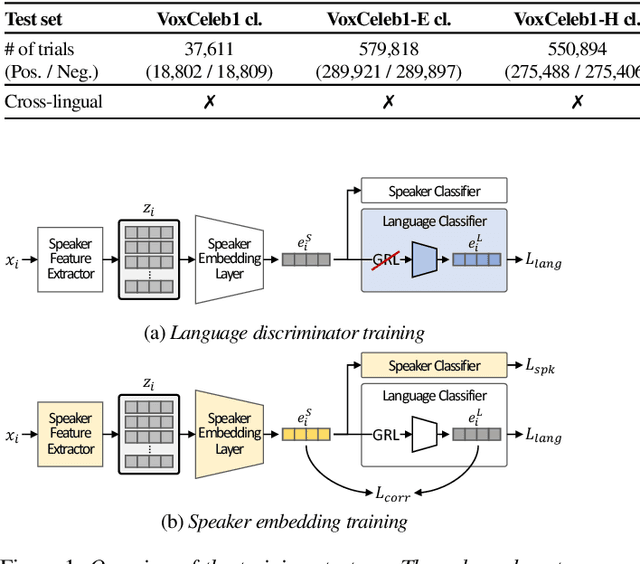

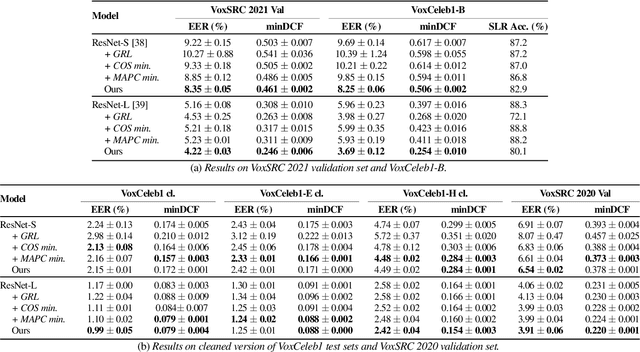
Abstract:The goal of this paper is to train speaker embeddings that are robust to bilingual speaking scenario. The majority of the world's population speak at least two languages; however, most speaker recognition systems fail to recognise the same speaker when speaking in different languages. Popular speaker recognition evaluation sets do not consider the bilingual scenario, making it difficult to analyse the effect of bilingual speakers on speaker recognition performance. This paper proposes a new large-scale evaluation set derived from VoxCeleb that considers bilingual scenarios. We also introduce a representation learning strategy, which disentangles language information from speaker representation to account for the bilingual scenario. This language-disentangled representation learning strategy can be adapted to existing models with small changes to the training pipeline. Experimental results demonstrate that the baseline models suffer significant performance degradation when evaluated on the proposed bilingual test set. On the contrary, the model trained with the proposed disentanglement strategy shows significant improvement under the bilingual evaluation scenario while simultaneously retaining competitive performance on existing monolingual test sets.
ClovaCall: Korean Goal-Oriented Dialog Speech Corpus for Automatic Speech Recognition of Contact Centers
May 17, 2020
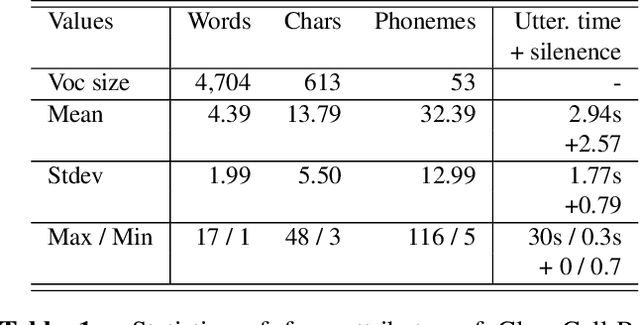
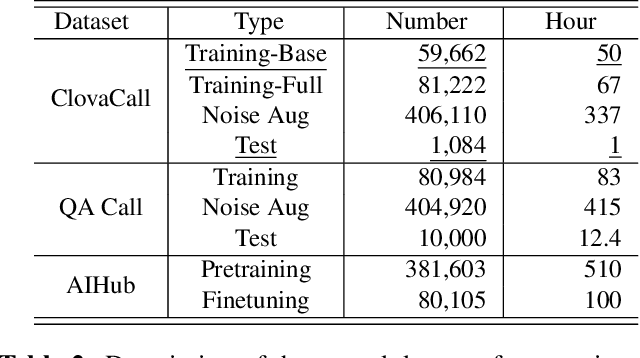
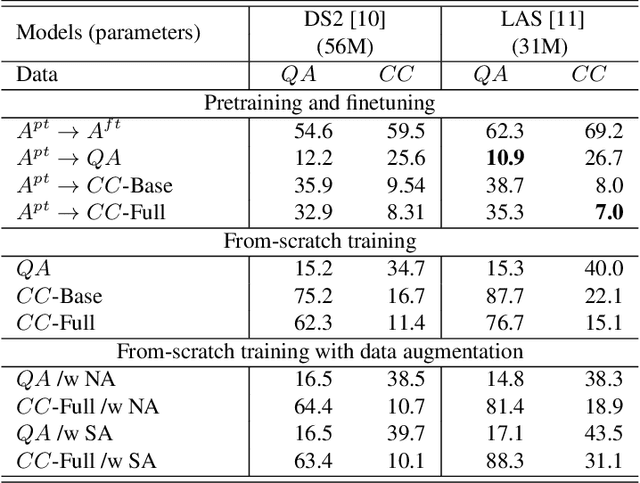
Abstract:Automatic speech recognition (ASR) via call is essential for various applications, including AI for contact center (AICC) services. Despite the advancement of ASR, however, most publicly available call-based speech corpora such as Switchboard are old-fashioned. Also, most existing call corpora are in English and mainly focus on open domain dialog or general scenarios such as audiobooks. Here we introduce a new large-scale Korean call-based speech corpus under a goal-oriented dialog scenario from more than 11,000 people, i.e., ClovaCall corpus. ClovaCall includes approximately 60,000 pairs of a short sentence and its corresponding spoken utterance in a restaurant reservation domain. We validate the effectiveness of our dataset with intensive experiments using two standard ASR models. Furthermore, we release our ClovaCall dataset and baseline source codes to be available via https://github.com/ClovaAI/ClovaCall.
 Add to Chrome
Add to Chrome Add to Firefox
Add to Firefox Add to Edge
Add to Edge